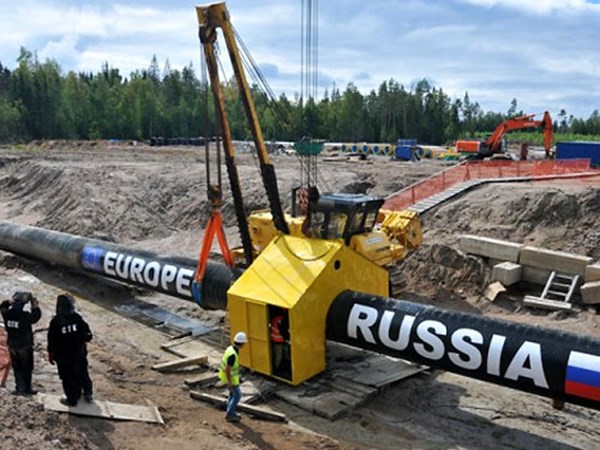Washington: Russia will not be able to complete Nord Stream 2
Russia will not be able to complete the Nord Stream 2 pipeline on its own because it lacks the necessary technology. There will be a "long delay" in construction due to US sanctions, despite the assurances of Russian President Vladimir Putin that the gas pipeline will be completed in a few months, said the U.S. Secretary of Energy Dan Brouillette at the Munich Security Conference on Saturday, February 15.
"They can't," Brouillette said when asked.
The U.S. Energy Secretary also denied reports that the U.S. sanctions would cause a short delay in construction.
"It will be a very long delay because Russia does not have this technology," he said.
The Secretary stressed that he does not trust the statements that the construction is almost completed.
The head of the Gazprom's press service Sergey Kupriyanov in an interview with RBC agency commented on the statement of the American minister with the words: "Never say never."
US Congress approved the National Defense Authorization Act (NDAA) on December 17. President Donald Trump signed it on December 21. Following the adoption of the budget by Congress, two Republican US senators, Ted Cruz and Ron Johnson, sent a letter to Allseas, demanding that the company stop all work on the pipeline. "…the consequences of your company continuing to do work -for even a single day after the President signs the sanctions legislation-would expose your company to crushing and potentially fatal legal and economic sanctions," the letter reads.
Allseas company has been working with Gazprom and Nord Stream 2 AG for several years. In 2016, it won tenders for laying pipes for Nord Stream 2 and TurkStream gas pipeline projects.
The sanctions stipulated in the NDAA can apply to companies which provide vessels for the construction of export pipelines. In the case of Russia’s Gazprom, the providers are Swiss Allseas and Saipem, which own the world’s fastest pipe-laying vessels, which can lay up to 5 km per day.
According to the amendments to the NDAA authored by Republican Senator Ted Cruz and Democrat Jeanne Shaheen, such restrictions will safeguard Europe’s energy security.
The initial version included severe sanctions on Russian government debt, with restrictions on the secondary market and ruble-denominated bonds, of which $44 billion is held by non-residents of Russia.
The bill gives the US Department of State 60 days to compile a list of companies that will come under the sanctions. The companies will then be given another 30 days to cease their activity.
The US could have imposed sanctions on the participant companies even earlier: They were set out in the Countering America’s Adversaries Through Sanctions Act (CAATSA), which was passed in 2017, notes Gerhard Mangott, professor of political at the University of Innsbruck, an expert on Eastern Europe.
However, the Trump Administration chose not to do so, even though Germany’s position in the dispute with the US was inherently weak: “If Germany had tried to get revenge by punishing the Americans for the sanctions on Nord Stream 2, it would have found itself in a very vulnerable position with regard to restrictions against the German automotive industry,” said Mangott.
Even without US sanctions, Gazprom’s export opportunities have taken a hammering. In September, the European Court of Justice banned the Russian company from utilizing more than half of the capacity of the OPAL pipeline – the land offshoot of the first Nord Stream line.
The decision was made based on a lawsuit from Poland, which insisted that, by giving Gazprom access to the pipe that pumps gas from Nord Stream to countries in Central and Western Europe, the European Commission violated the principles of the EU gas directive, which prohibits one company from being both the gas supplier and the owner of the pipeline.
For Gazprom, this decision means a loss of 18 billion cubic meters per year, one third of Nord Stream 1’s designed capacity (55 billion cubic meters).
